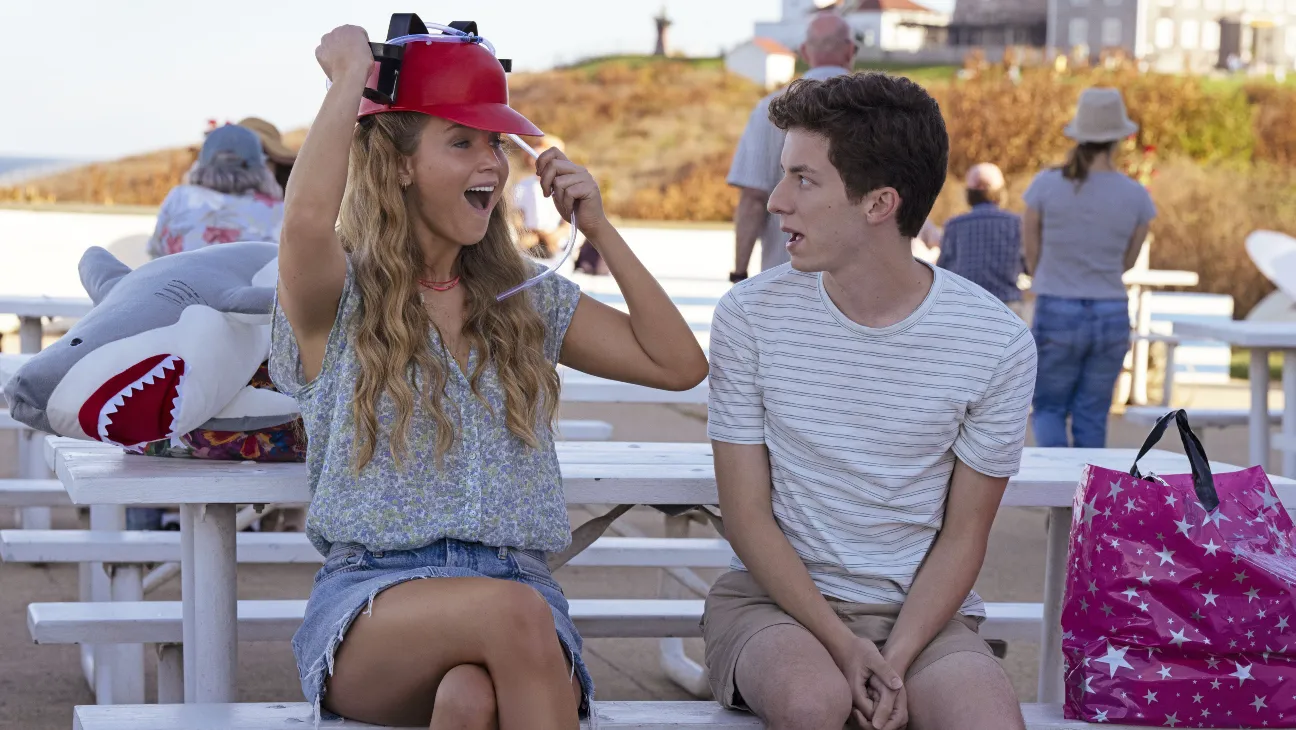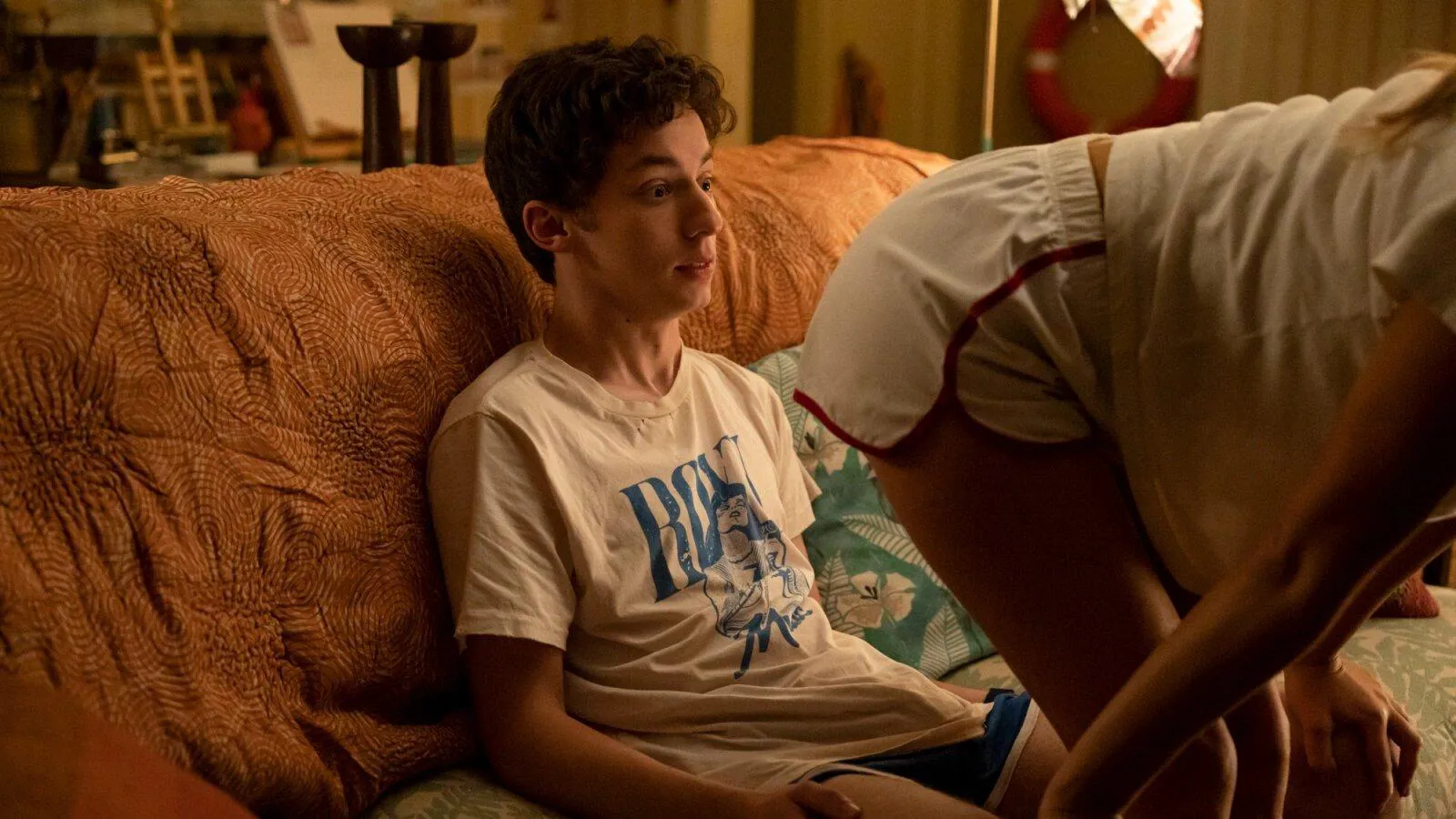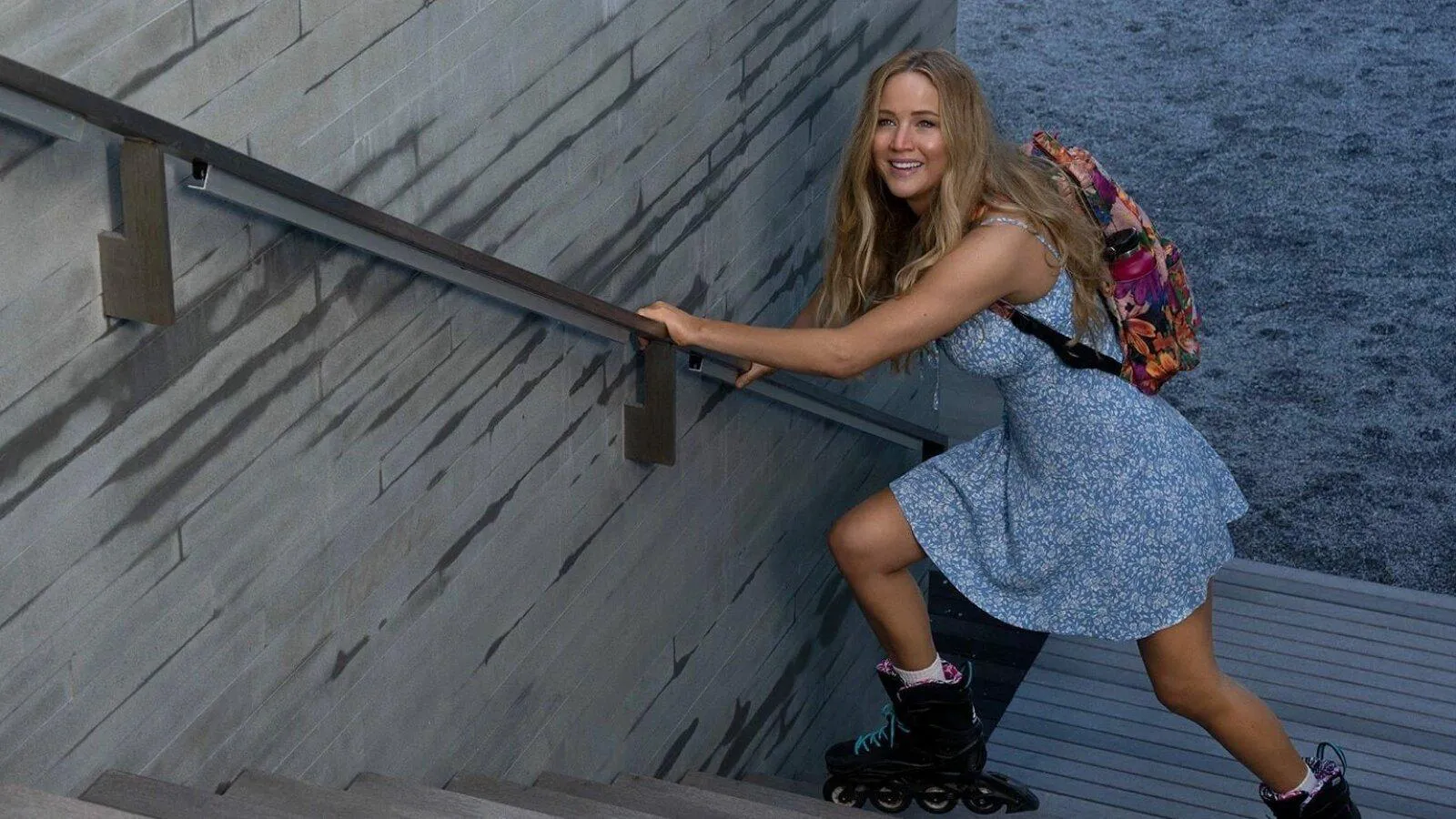Maddie (Jennifer Lawrence) has lived in the coastal town of Montauk her entire life. As the small town becomes increasingly populated by wealthy individuals, property taxes and prices soar, pushing out locals with their modest incomes. The protagonist risks losing her childhood home; her car has already been repossessed due to unpaid taxes, taking with it her chance to work as an Uber driver. Out of desperation, Maddie seeks odd jobs but stumbles upon an intriguing offer from a wealthy family: a car in exchange for a young woman’s services to coax their teenage son, Percy (Andrew Barth Feldman), out of his “shell,” with sex being part of the deal. Maddie agrees to what seems like a simple mission, but the introverted Percy proves to be a challenge, forcing her to resort to extreme measures.

Jennifer Lawrence as Maddie in “No Hard Feelings”
The promotional campaign promised a lot: firstly, Jennifer Lawrence’s comeback after maternity leave, and secondly, an “old-fashioned comedy” in the vein of “American Pie,” which audiences have been longing for. However, Jennifer already returned last year with the less ambitious film “Causeway,” and expecting a breakthrough from Gene Stupnitsky, the director of “Bad Teacher,” capable of revitalizing cinemas is like expecting rain in the desert. Nevertheless, the promotion worked; Jennifer’s fanbase picked up on the hype surrounding the release, and media personalities urged people to save cinemas and vote with their wallets. But, no hard feelings, the “old-fashioned” comedy didn’t deliver on its promises.

Andrew Barth Feldman as Percy in “No Hard Feelings”
While the director initially raises the issue of gentrification and the divide between the working and middle classes in the opening minutes, by the middle of the film, he completely forgets about the set course, leaving us alone with below-the-belt jokes and a naked Jennifer Lawrence comically chasing hooligans on the beach. The performative activism fades away as the film’s focus narrows to the perspective of a rich-poor boy fixated on psychological traumas and refusing to live life to the fullest due to self-doubt. The needs of Maddie, who is on the verge of homelessness, take a backseat whenever Percy’s feelings are even slightly hurt—for a job well done, she receives a wrecked car. At this point, the comedy turns into a “Field of Dreams” from hell, 1:0 in favor of the wealthy ruining the ecosystem of the resort town of Montauk. The critique of capitalism is swept under the rug, as if the topic was never even introduced.

Jennifer Lawrence as Maddie in “No Hard Feelings”
“American Pie,” like other comedies of the early 2000s, became famous for several reasons: breaking taboo subjects, the absence of quotas on butt jokes, a wild plot, and being terribly irritating to conservative adults. “Old-fashioned” comedies stopped being made for the same reason silent films stopped being made—society changed, progress was reflected in pop culture, and for “the way it used to be” and a dose of nostalgia, one can always turn to the archives. Therefore, “No Hard Feelings” is hard to call an old-fashioned comedy; it’s more like a ridiculous attempt to amuse people with banana peels and frantic grimaces. Without Jennifer Lawrence, it would simply be another passable rom-com that barely recouped its budget after being released on streaming platforms. Fans will appreciate the actress’s performance, and the world will also discover the young talent of Andrew Barth Feldman, successfully trying his hand on the big screen after the Broadway stage. After the marketing campaign subsides, the film will be forgotten and buried online, unlike “American Pie,” which “No Hard Feelings” tried to emulate.